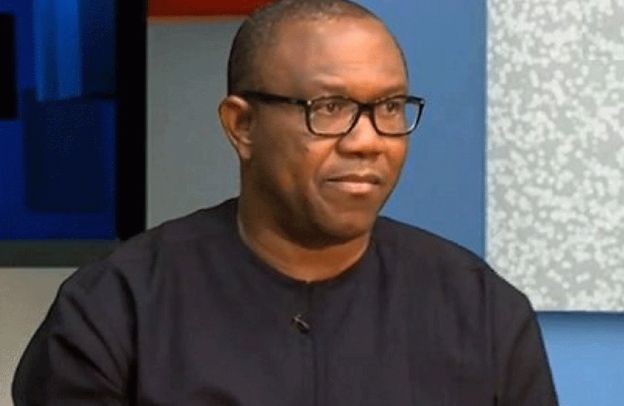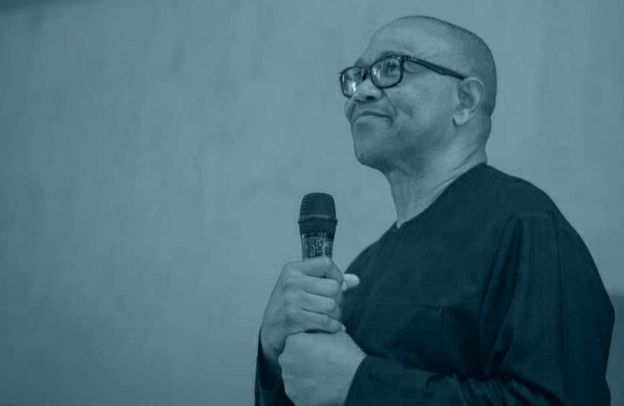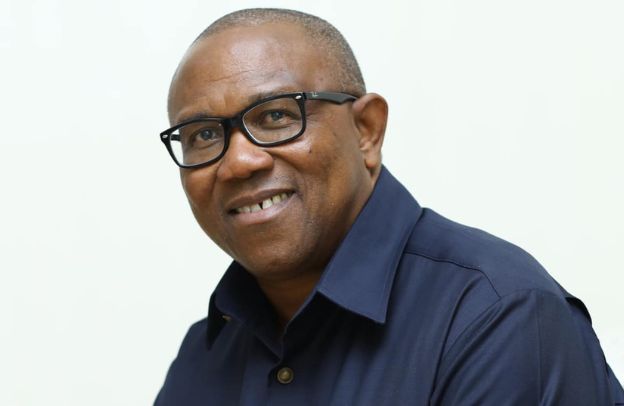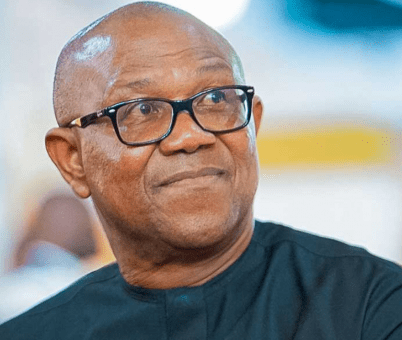The Making of Peter Obi – From Business to Politics

Before he entered politics, Obi had a successful career in business, where he was the chairman of several companies, including Next International Nigeria Ltd., a leading international manufacturer and marketer of leather products based in Nigeria. He also served as the Chairman of the Securities and Exchange Commission, the regulatory body for the Nigerian capital market.
Download the first chapter of The Storytelling Series: Beginners’ Guide for Small Businesses & Content Creators by Obehi Ewanfoh.
As Governor of Anambra State, Obi was known for his frugal and transparent approach to governance, which earned him several awards, including the Bill and Melinda Gates Foundation’s Best Governor Award in 2012. He implemented several reforms in the education and healthcare sectors of the state, and also initiated infrastructure development projects in the state.
Rise to prominence
Peter Obi’s rise to prominence has been nothing short of impressive. He has inspired a passionate following, primarily made up of the youth, and disrupted Nigeria’s traditional two-man presidential contest. However, the question remains: can he translate his popularity into a victory at the polls and become president?
Obi’s meteoric rise to political stardom is a testament to his pragmatic and transparent approach to governance, which he demonstrated during his tenure as the governor of Anambra State. His leadership philosophy, which emphasizes inclusivity, collaboration, and good governance, has earned him immense admiration and support from Nigerians across the country.
Despite his widespread popularity, Obi faces several challenges in his quest to become president. The Nigerian political landscape is highly competitive and can be unpredictable, making it difficult to predict the outcome of any election. Moreover, Nigeria’s complex socio-economic and political issues require a leader with a deep understanding of the country’s problems and the ability to offer practical solutions.
However, with his proven track record of effective leadership and commitment to the people’s welfare, Obi remains a formidable candidate for the presidency. He has already inspired a movement of passionate and dedicated supporters, and if he can build on this momentum, he may very well become Nigeria’s next president.
The Upbringing, Education, and Transition of Peter Obi from the Business World to Politics
Peter Obi was born on July 19th, 1961, in Onitsha, Anambra State, Nigeria, to a Catholic family. He attended Christ the King College in Onitsha for his secondary education, where he was known for his academic excellence and leadership skills. After completing his secondary education, Obi went on to study Philosophy at the University of Nigeria, Nsukka.
After graduation, Obi started his career in business and became a successful entrepreneur, eventually becoming the chairman of several companies, including Next International Nigeria Ltd., which is a leading international manufacturer and marketer of leather products based in Nigeria.
Obi’s interest in politics was sparked by the state of affairs in his home state of Anambra, which he believed was being poorly managed by the political class. He was particularly concerned about the level of corruption and mismanagement of public funds, which he felt was hindering development in the state.
In 2003, Obi made his first foray into politics when he ran for governor of Anambra State under the platform of the All Progressives Grand Alliance (APGA) party but lost the election. He challenged the results in court, alleging irregularities, and eventually won the case, which led to a rerun election in 2006.
In the 2006 elections, Obi ran again and was elected as the Governor of Anambra State. He served for two terms, from 2006 to 2014, during which he implemented several reforms and initiatives aimed at improving the state’s infrastructure, healthcare, and education systems.
Obi’s transition from the business world to politics was a smooth one, as he brought his experience as a successful entrepreneur to bear on his governance style, which was characterized by prudence, accountability, and transparency. His time in office was marked by several achievements, and he is widely regarded as one of the most successful governors in Nigeria’s recent history.
Values and Principles that Shaped Peter Obi’s Worldview
Peter Obi’s worldview is shaped by several values and principles that have influenced his personal and professional life. Some of these values and principles include:
Prudence and Frugality:
Obi believes in the need for leaders to be prudent and frugal in their management of public funds. He is known for his austere lifestyle and his efforts to cut down on unnecessary government expenses while he served as Governor of Anambra State.
Integrity:
Obi places a high value on integrity and ethical conduct. He has consistently advocated for transparency and accountability in government and has spoken out against corruption and other forms of malfeasance.
Education:
Obi is a strong believer in the transformative power of education. He has initiated several programs aimed at improving access to education and promoting academic excellence, particularly in Anambra State.
Service:
Obi is committed to serving his community and the people of Nigeria. He has demonstrated this commitment through his involvement in philanthropic activities and his advocacy for good governance and public service.
Innovation and Entrepreneurship:
Obi is a proponent of innovation and entrepreneurship as drivers of economic growth and development. He has encouraged the development of small and medium-sized enterprises in Nigeria and has supported initiatives aimed at promoting innovation and technology in the country.
Overall, Obi’s values and principles reflect a deep commitment to excellence, service, and ethical leadership, which have shaped his worldview and his approach to governance and public service.
The vision that Drives Obi’s Mission to Reclaim the Nigerian Dream
Peter Obi’s vision for reclaiming the Nigerian Dream is centered on transforming Nigeria into a prosperous, just, and equitable society. He believes that Nigeria has the potential to become a great nation, but that this can only be achieved through visionary leadership, good governance, and a commitment to the rule of law.
At the heart of Obi’s vision is the need to address the deep-seated challenges facing Nigeria, including poverty, inequality, corruption, and insecurity. He believes that these challenges can only be overcome through a comprehensive and integrated approach that includes political, economic, and social reforms.
Obi’s vision for a better Nigeria is based on the following key pillars:
Economic development:
Obi believes that economic development is critical to the growth and stability of Nigeria. He advocates for policies that promote investment, job creation, and entrepreneurship, particularly in the non-oil sector of the economy.
Education:
Peter is a strong believer in the power of education to transform individuals and societies. He believes that education is the key to unlocking Nigeria’s potential and has advocated for policies aimed at improving access to quality education for all Nigerians.
Healthcare:
Obi recognizes the importance of healthcare in promoting the well-being of Nigerians. He has supported efforts to improve access to healthcare, particularly in rural and underserved areas of the country.
Infrastructure:
Peter Obi believes that infrastructure development is critical to the economic growth and development of Nigeria. He has supported efforts to improve road networks, transportation, and other critical infrastructure.
Good governance:
Obi is a strong advocate for good governance and the rule of law. He believes that Nigeria’s political leaders must be held accountable for their actions and must work to promote the interests of all Nigerians, not just a privileged few.
Overall, Obi’s vision for reclaiming the Nigerian Dream is driven by a deep commitment to the well-being of Nigerians and a belief in the transformative power of visionary leadership and good governance.
Conclusion on The Making of Peter Obi – From Business to Politics
Peter Obi’s transition from the business world to politics has been remarkable, showcasing exceptional leadership qualities that prioritize transparency, inclusivity, and good governance. His journey has inspired a passionate youth movement in Nigeria, disrupting the traditional two-man presidential contest.
While obstacles lie ahead in his pursuit of the presidency, Obi’s proven track record of effective leadership and unwavering commitment to the welfare of the people make him a formidable candidate. His pragmatic and transparent approach to governance sets an example for the type of leadership needed in Nigeria to drive progress and development.
It is crucial to learn from Obi’s journey and embrace his leadership approach as Nigeria moves forward. Regardless of the outcome of his presidential bid, his legacy as a transformative leader who reshaped the Nigerian political landscape will endure. Let us celebrate his journey and continue to support his commitment to the people of Nigeria, inspiring future generations to follow in his footsteps.
Learn how to master your storytelling skills so you can build your influence. Download the first chapter of The Storytelling Series: Beginners’ Guide for Small Businesses & Content Creators by Obehi Ewanfoh.





